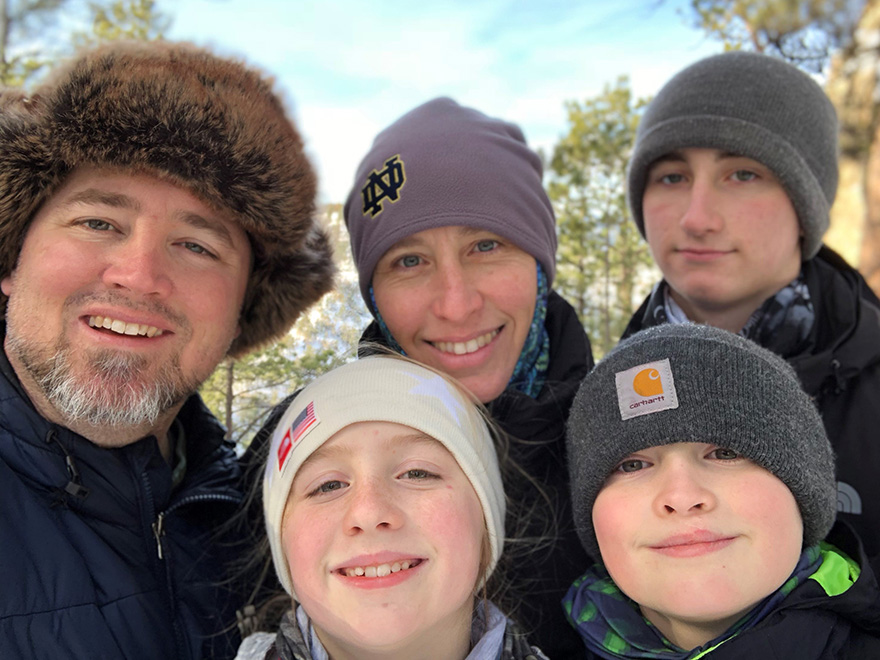Restorative Niche Activities
Winter is just sitting on top of us like a mean big brother who does not really care how “un-fun” the game has become. He is bigger than us and we just have to deal with it. I am an only child, so this is an entirely made-up scenario – but it seems plausible.
It is hard to wake up each day to another dark, cold morning, get children to school on slick roads or through snow, then off to work, only to pick up children, hope to get home before dark, make supper, do homework, bedtime routine, and then repeat. Granted, this is more or less what 75% of the year looks like, but somehow it is harder in February and March. As parents we can just feel devoid of energy and inspiration—empty.
That emptiness makes it very hard to be at out best for our children and our spouses.
We often tell ministry students, “You can’t minister from an empty cup,” meaning you have to attend to taking care of yourself and then minister from your overflow. Otherwise you are working from a deficit that will never be replaced (Bernard of Clairvaux).
In marriage and family life we do not always get the opportunity to fully attend to ourselves—to fill our cups. We rarely have the time and energy to exercise as much or even when we might want to; to pray as much, when, or even in the manner we might feel called; or to meet up with friends, go on retreat, or travel. We don’t even get to dictate our own sleep patterns!
One of the ways Joshua and I have begun to help one another in this regard is to carve out space for “restorative niche activities.” This is a phrase used by Matt Bloom, a sociologist whose research helps ministers flourish in ministry. It describes activities that meet two criteria: they are activities that we do well enough to pursue a sense of mastery; and they are activities that we do out of intrinsic motivation—simply for the joy we experience in the activity itself.
A variety of activities can be restorative, such as knitting, golf, painting, gardening, or model railroading. Bloom advises that for a restorative niche to really contribute to our flourishing, we need to engage in it regularly. Regularly, for him, means at least once a week.
Now if you are like me, one of the hardest parts of practicing restorative niche activities is just finding out what yours are. Josh’s is easy—baseball. He is part of an informal league that plays during summer, and he likes to make it to the batting cages when he can in the “off-season.”
I was happy to find an activity that suits the winter weather: ice-skating. I love playing on the ice. It is something that I do well enough that it is fun, and something that I would enjoy doing even better. When I am on the ice trying out new things, I totally lose track of time. That is one of the hallmarks of a true restorative niche—losing track of time.
This winter, Joshua has encouraged me to carve out a day or two each week to ice skate during the noon hour. It really is a lovely break from the day. It is refreshing in a way that has nothing to do with exercise and everything to do with clearing my mind and focusing on something for its own sake, not for a specific outcome.
The busy-ness of contemporary family life and its attendant stressors make it almost impossible not to be focused on goals and outcomes. We often need to plan our days out minute-by-minute so that everything fits. Our lives would be a mess without some sense of order and effort at planning and execution.
Restorative niche activities remind us how to play. How to just do something for its own sake and find ourselves in the fun of it. One of the ways Joshua and I support each other in marriage is by encouraging each other’s full flourishing. Just because the demands of parenting can easily become all-consuming does not mean that we should entirely lose our identity as individuals.
When we are whole in ourselves, when our “cups are full,” we are able to give not from a deficit but from our overflow. Such is the abundance of God’s love.





